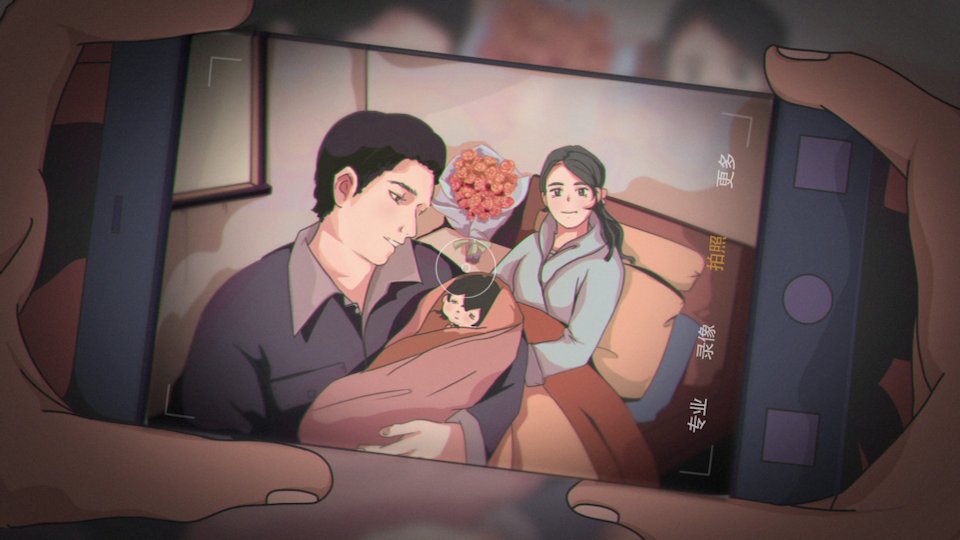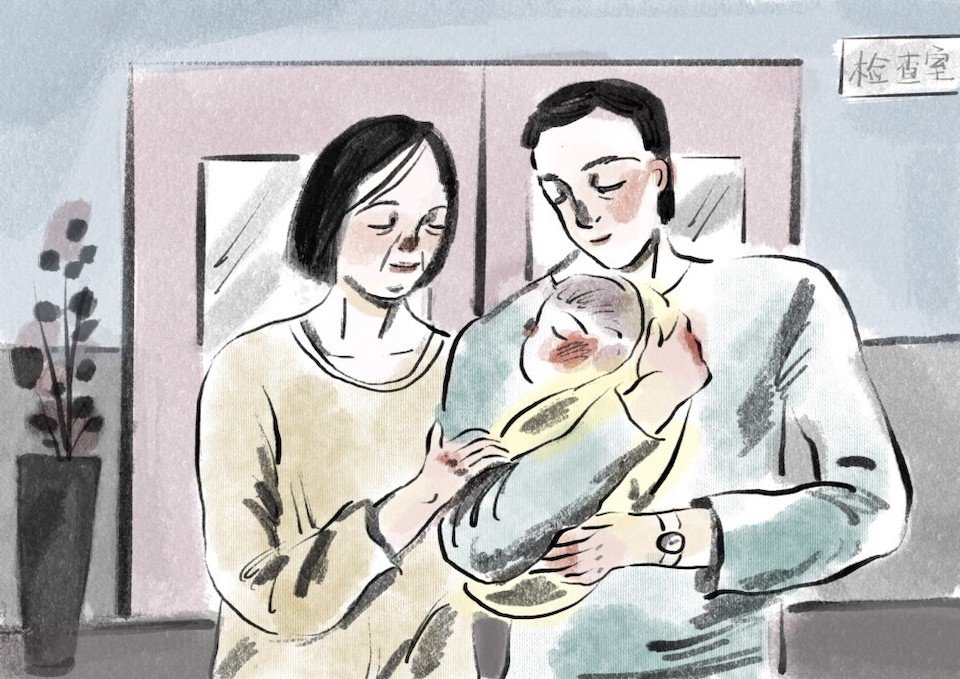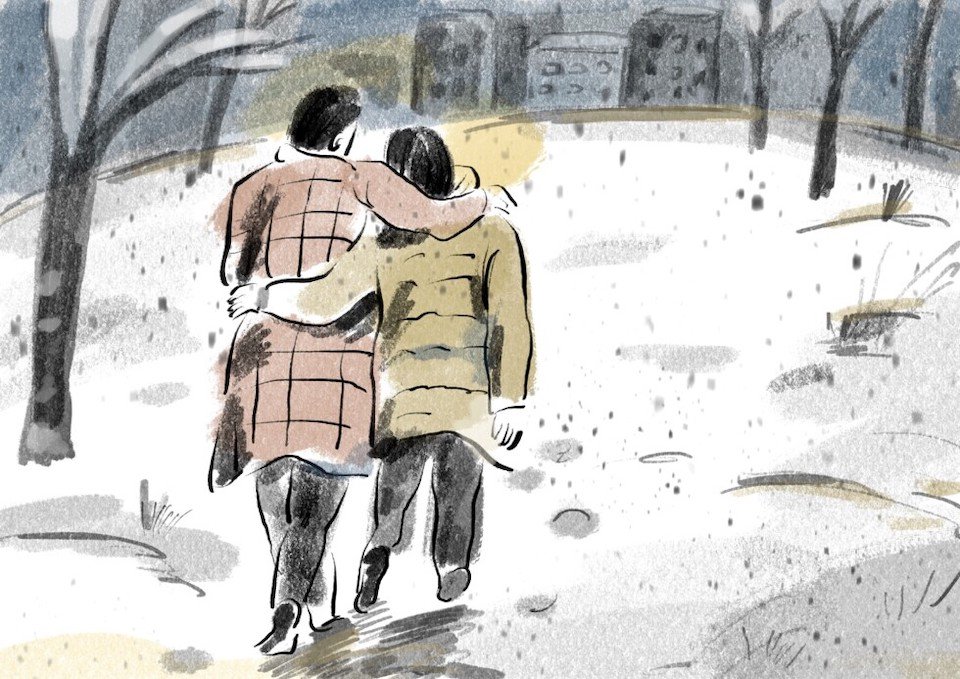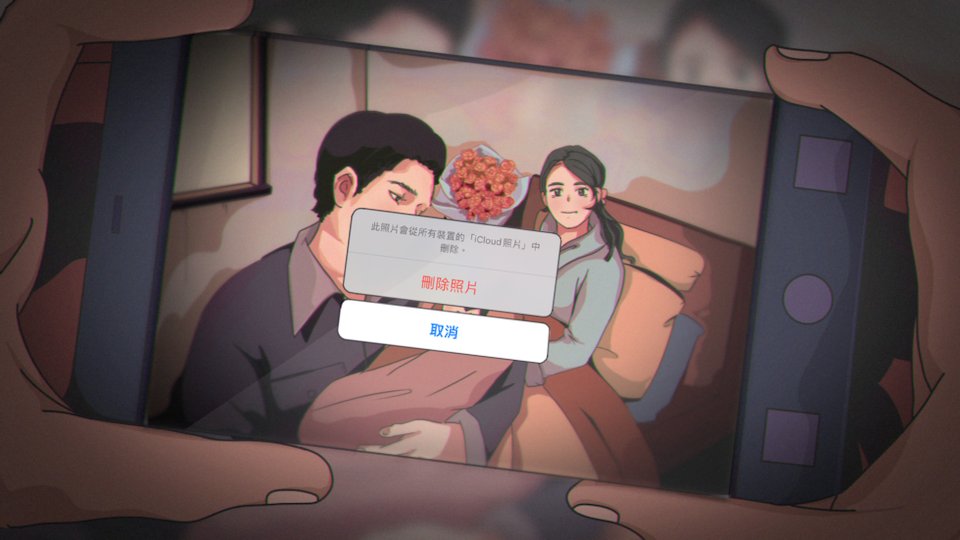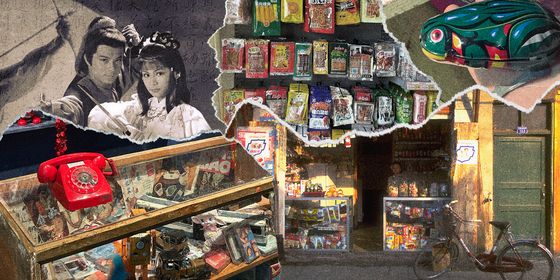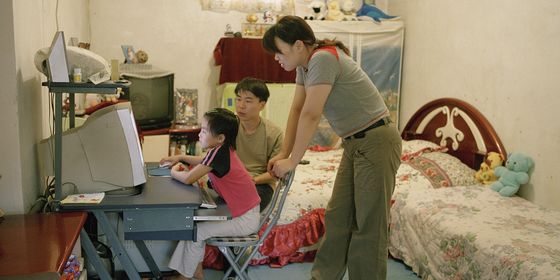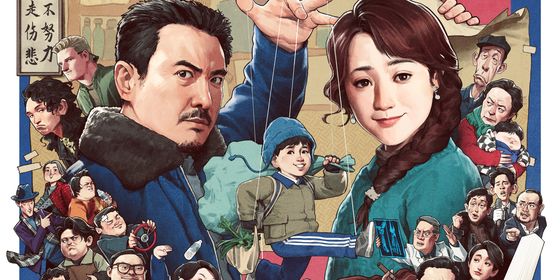A father from Shandong recounts living with a child with a congenital illness
-1-
A new life
I have a family that would be the envy of many. My wife and I have decent jobs, a house and car, and our lives aren’t exactly stressful. Our older son is already 6; he’s a rambunctious and exceptionally healthy child.
Since he was always jealous of his other classmates and their little brothers and sisters, after careful consideration, my partner and I decided to have another child.
Before we knew it, my partner was pregnant.
Back then, our eldest would chat with the child in my wife’s belly each day. We also readied a separate room for the children, with everything organized in sets of two.
My mom got to thinking about how she’d have to lend a hand with the eldest when it came to my partner’s post-natal confinement month [a tradition for Chinese mothers after childbirth]. She took special mobility scooter classes and familiarized herself in advance with my son’s route to school.
My dad was no slouch either, he’d say, “After the second is born the five-seater won’t cut it, we’ll need to switch over to a seven-seater. When the time comes I’ll close up my shop and we’ll get the whole family together to go on an adventure!” He’d even thought of a name for the child, ‘Jiayan’ (嘉言, wise words), echoing the phrase “A noble man is wise in words and good in deed.” This expressed his hope for the new baby.
The whole family poured themselves into preparing for this new life on the way.
-2-
Birth
My partner spent 36 painful hours in hospital giving birth to our first child before it was delivered.
So by this second time around we’d done our homework; from pre-natal examinations to maternal nutrition and post-natal care—we prepared everything in advance.
I even took the trouble of booking the family-style delivery room with the best amenities at the local hospital well ahead of time. We also had an epidural injection lined up.
You could almost say nothing was left to chance.
Then at 3 in the afternoon on December 6th 2020, I accompanied my wife into the delivery room. Like before, my wife was in serious pain. Grasping her hand, I called for the doctor to administer the epidural. Under ordinary circumstances it would be another one to two hours before birth occurred, so the doctor sent me off to buy my wife an energy drink.
What happened was that in that 20-minute period when I was away, the baby was born.
I stood dumbstruck. My heart longed first to check in and see how my partner was getting on. But the doctor pressed the baby into my chest, saying “Quick! Hold on to your son, I’ll take your photo.”
To all appearances he seemed right as rain. The knot in my stomach unclenched by half.
“The baby was born smoothly; the most difficult hurdle is past,” I thought.
-3-
An urgent rescue
But fast-forward to 9 a.m. the next morning and our child’s condition had taken a sudden turn.
His body started to go blue all over, and turned rigid. We frantically called over the pediatrician and they discovered a lung infection after listening to his chest. At once, they took him to the intensive care unit to be saved.
I waited anxiously outside for over an hour, until a doctor emerged: “The child only has one lung, he isn’t likely to live that long.”
Hearing this news my mind instantly went blank, and stayed blank the whole way back from the ICU to my wife’s ward. My face streaked by tears, I could think of no solution, only hopelessness.
Outside the ward I told my mother-in-law about the child’s condition. Little did I expect that my partner would hear our crying from inside her room. Believing the child had already died, she suddenly couldn’t bear it and her blood pressure spiked. The medical staff promptly put her on an IV drip.
All she could do then was cry; she couldn’t even speak. When they’re at their most heartbroken, people cease being able to talk.
-4-
A plot twist
By the afternoon our child’s condition had stabilized. Intensive care then informed me they had taken the child for a detailed examination, which had resulted in a further plot twist.
The examination results indicated the child did have lungs, but they had yet to open. Once they puffed out then the issue would be resolved. He’d have to remain in the hospital a few more days for the inflammation to go down, but it was nothing of great concern.
I wouldn’t say that I recovered my color completely, but I could finally let out a breath.
Though that evening my partner and I tossed and turned without sleeping, our understanding was that our child was healthy and that he would slowly recover.
To be honest I had no time to think while all this was happening, as I was rushing back and forth between my wife and child. But after I’d calmed down I felt a dark kind of premonition. I don’t know why, but the evening Jiayan was born I didn’t feel like posting anything at all in my WeChat ‘Moments,’ as you normally would when a child is born. I felt as though fate had something in store for us.
-5-
The answer
The next day, I took my wife home to recuperate. As for myself, every day I went back to the hospital to keep an eye on our child. Fortunately he was recovering well and within three to four days his lungs would be functioning as normal.
But then a new problem reared its head.
The doctor had discovered that Jiayan’s blood sugar was extremely low. He was relying on an IV drip to stay alive. The doctor doubted this was down to physiological stress following the lung infection and decided to keep the baby under observation for a few more days.
It wasn’t easy to lay down my heart only to drag it back up. I was impatient to get word on exactly what was up, and when he would recover.
On the morning of the sixth day, we received a phone call from the doctor. They sent me off to meet with somebody. Unease crept into my heart. If this was some ordinary illness there would be no need to consult somebody outside the hospital, right?
I remember that day was particularly foggy, and it felt as though if I cut through that fog, then an answer would present itself.
Following the information the hospital had given me, I drove for about 40 minutes before I finally arrived at a village. Waiting for me there was a man in his 40s.
He handed me a box of medication, telling me, “My child also suffers from hyperinsulinemia.”
He had his 2-year-old son by his side. The boy’s height and weight were normal, but he seemed to be missing the bright energy of a small child.
“Hyperinsulinemia?” This man and I started talking.
He informed me, “My son was the first confirmed case in the area. We’d gone to Beijing and Shanghai, and paid 200,000 to 300,000 yuan before we cottoned on to our child having this illness. This disorder calls for a specific medication that even the hospital didn’t have. The doctor put me in touch with a group, and its from this group I purchase the medication.” With this, the man added me into the WeChat group too.
Just then I was hardly willing. My gut told me Jiayan definitely didn’t have this kind of illness. But then the man said, “If this medication proves effective, then you can pretty much be sure that’s what this is.”
Hearing this I was torn. On the one hand, the doctors had exhausted every avenue to maintain Jiayan’s blood sugar with considerable difficulty, so I wanted the medication to work. But on the other, I was afraid to find Jiayan had this so-called hyperinsulinemia.
Nevertheless, I accepted the medication. After I gave it to my son, it really did seem to have an effect.
-6-
On the other side of the scales
Afterward, the doctors switched their treatment method to regulating the medication’s dosage slowly. They were waiting until Jiayan’s blood sugar could be stabilized, then we could leave the hospital. But from then on, my son would be taking medication according to this dosage for the rest of his life.
“Even though he’d be going through life on medication, how could we consider abandoning him?” That’s what my wife and I agreed on.
But congenital hyperinsulinemia is a rare disease. That means that the research attention and funding it attracts is extremely limited.
This illness means that your insulin secretion is no longer regulated by blood sugar levels and this in turn causes repeated episodes of dangerously low blood sugar. Without timely active treatment, the nervous system would suffer lingering damage.
As we became deeply familiar with this illness, the cost and choices on the other side of the scale slowly became apparent to us.
To put it more bluntly: “Should we raise a child suffering from a rare disease?”
My wife and I had already made our peace. We’d bring up Jiayan for as long as we could. We’d give it our all and leave no regrets.
But many of our friends and relatives were opposed to it, including our parents on both sides. They all urged us to give up.
I could see that they wanted the lives of normal people; I could understand. After all, if we raised a child like this, he’d be bound to require someone’s constant supervision, and we could no longer lead a normal life.
Our parents said something that affected me deeply.
“If you give up now, you’ll suffer. But if you hold out until he can call for his mother and father, and then you continue to see him undergo all that pain of an incurable illness on top of discrimination he’ll suffer too—How will you both feel then? When that time comes, you won’t be able to give him up anymore.”
-7-
Can’t give up
There was one time when my mother and I brought Jiayan out of the ICU for a check-up. Since he went into the ICU as soon as he was born, I could only see him when I brought him out for a checkup.
At the time Jiayan was sleeping rather peacefully, his complexion ruddy. It was as though he were a regular child.
Cradling him I said to my mom, “Look at how how well this child has grown, how can we possibly abandon him?”
Then I cried. My mother cried too.
After we returned home, my mother addressed me in a heartfelt manner: “We’ll help you raise him, for however long he can go on for. The whole family is behind you.”
So the older generation were also in pain; was “abandonment” easier said than done for them, too?
After that, tests came back that indicated sustained low blood sugar had damaged the child’s brain. I saw research from Beijing Children’s Hospital that showed the overwhelming majority of newborns suffering from this disease went on to experience severe cognitive deficiencies.
Jiayan wouldn’t die, but neither would he live a normal life.
Yet he must grow up at some stage. Although I can’t decide for him, as a parent I can’t only think about myself not having regrets. If he can’t enjoy the wellbeing of a regular person, then isn’t it better to…?
It’s all well and good to say that. But we’re talking about a life here; there’s no way we could do something like that.
-8-
Falling apart
For a split second one morning, while dropping off our eldest son at kindergarten, rationality triumphed over emotion.
The past few days my heart had been jittery. Our eldest was a well-behaved kid. On this day he didn’t act up either; he was just dawdling a little, but I flew into a terrible rage.
Seeing the grievance in that child’s eyes, I realized our younger son was at the hospital; he hadn’t even come home yet, and it was already difficult for me to get a handle on my emotions. Going forward, wouldn’t every one of us change because of this child?
I began to seriously consider whether or not to give him up.
My partner would have to be on board were we to go down that route. Ultimately, this child was ours, and she had given birth. The brunt of the pain would be hers.
But in the end we never got around to discussing the matter. It was decided in our own hearts.
Seven days after being discharged, my partner was scheduled for a follow-up appointment. It had snowed heavily that day and we passed the ICU, aware Jiayan was inside. Yet there was no way to steal a look inside.
Then, in the elevator on the way home, my partner suddenly lost it. She fell into my arms sobbing, seeming to finally release all that repressed pain and anger she had for heaven.
To my mind, that was her at her most desperate.
She’s very strong; she never once cried in the presence of my mother or father.
-9-
Bringing Jiayan home
After some silent internal grappling on both sides, we came to a shared understanding. Throughout this ordeal, neither one of us was ever to utter that words, “give up.”
“Giving up” meant “not allowing our child to continue suffering so much in an ICU.” There were the daily shots from the blood sugar tests—his fingers and toes were poked full with pinpricks. It meant “bringing our child back home.” We both knew what the implication of that was.
The day before that time arrived, my father and I sought out the director to inform him of our decision. The doctor had seen a lot—although they found it regrettable, they respected the view of the family.
Once I’d signed the papers, I headed straight home and spent the whole day by my partner’s side.
As our family had previously discussed, the child was to go home with my parents. From then on, we weren’t to see Jiayan and we weren’t to call to ask about him. We would have nothing more to do with him. We knew that if we saw our child just one more time, if we kept him even for a day, then there would be no letting go.
Later, I heard from my father that on the day Jiayan was discharged, a large number of relatives showed up at their house. Because Jiayan was our child, they wanted to give him a joyful welcome into the family, and to look after him until his vital signs were no more.
I stuck to my partner’s side during her isolation month. With just our eldest son at home, and the three of us together; it was as though nothing had happened.
But our eldest attended school during the day, leaving the two of us at home. We would lie there without speaking, doing nothing. It was as if our bodies had been sucked dry. We had no energy at all.
On the 20th day my father’s voice came down the line, “He’s gone.”
-10-
Jiayan departs
After a child’s blood sugar drops below a certain amount, they enter a coma-like state, twitching occasionally. His bodily functions would slowly shut down as he experienced organ failure.
He was far beyond any help. My heart aches to think of our child slowly expending his life force with nobody able to save him. I was wracked by self-reproach. Even until this day, I can’t fill this space in my heart.
Though I wanted to go over and see my child, my family insisted on keeping me away.
Jiayan had departed and his own parents weren’t there with them. He hadn’t even drunk a single mouthful of his own mother’s milk—how could he help but be resentful toward us?
In truth, the older generation had borne a lot on our behalf.
Everyone in the family threw their support behind my mother at the time, afraid her heart wouldn’t be able to take it. In the final days, she kept wanting to wipe down Jiayan’s body, to buy him new clothes. Apart from crying, this was all she had left to do.
To care for this child day after day, with its life gradually slipping away and and being powerless to stop it—that’s a helpless feeling.
The day after our child passed, my mother was hit with a spell of diarrhea with vomiting, and she confined herself to bed. She was seriously ill for some time.
Meanwhile my father spent his days hiding out at his store, occasionally returning to exchange a word or two with my mom. One glance at the child would move him to tears.
I’d only ever seen him cry twice. Once was when my paternal grandfather died and again when we came to pick up Jiayan from the hospital. He stood by himself outside the ICU, wailing.
My wife positioned herself in the direction where she knew Jiayan was every day, and kowtowed. She knew the child was still present and was begging for its mercy.
When I think about that moment when we decided to give up, it was even harder than that moment when we heard our child would die. Although it in no way ameliorated the pain in my heart, there at least suddenly emerged something resembling a conclusion. As if after tomorrow, our lives could regain some sense of normalcy.
-11-
Don’t mention it again
Ever since the child passed away, neither my partner nor my mother or father has raised the subject again. My wife deleted all the photos, texts, and WeChat Moments on her phone from that time.
Initially, I kept the photo the doctor took and sent to me, but every time I saw it, the lump returned to my throat.
In the end, I deleted that too.
But did any of this shield us from thinking of him?
I was working one afternoon last week when my partner called me out of nowhere. When I picked up, there was no sound except for her crying. I knew she’d been thinking of our child again.
Despite Jiayan only being in our lives just one day, and sharing but one evening with us, the affection we felt cannot be scrubbed away.
Our eldest sensed it too. My partner was sobbing at home one time, and to comfort her, he said, “Mom, you still have me, don’t you?”
We’d never told him his younger brother had died. Just once did my wife mention that his younger brother had gone to heaven, but his response was, “He didn’t go to heaven. Didn’t my younger brother die?”
He’d understood everything. He’d never brought it up with us, and yet he knew all.
-12-
Definitely an angel
Unable to sleep the day after our child passed, I wrote him a letter. I’d already planned to write one then put it in safekeeping until he grew up. I regretted I no longer had the opportunity to write such a letter.
My father used to say that back in the village children who died early were believed to be people whom we owed a debt in our past lives. When the debt was cleared the child had to be on its way. But that’s not how I saw it. I wanted him to know that we welcomed and anticipated his arrival.
This is what I wrote:
A letter to my son
My beloved son,
I don’t like others saying you’re a demand for repayment.
And I’m not willing to believe a newborn child is without consciousness.
You’re definitely an angel!
Arriving as you did, beside your father, mother, and big brother.
You’ll definitely remember your father and mother, won’t you?
You’ll bless and protect us from up on high, won’t you?
Lots of people that have come to comfort your mother and father,
Saying over and over, “You’re still young. Once you’re over it, you’ll want another one.”
But Daddy thinks there isn’t a single person who could take your place. No little child who gets to exist just because you left.
Your father will remember your birthday forever: 2020/12/06
Translated by Jesse Young
___
This story is published as part of TWOC’s collaboration with Story FM, a renowned storytelling podcast in China. It has been translated from Chinese by TWOC and edited for clarity. The original can be listened to on Story FM’s channel on Himalaya and Apple Podcasts (in Chinese only).







